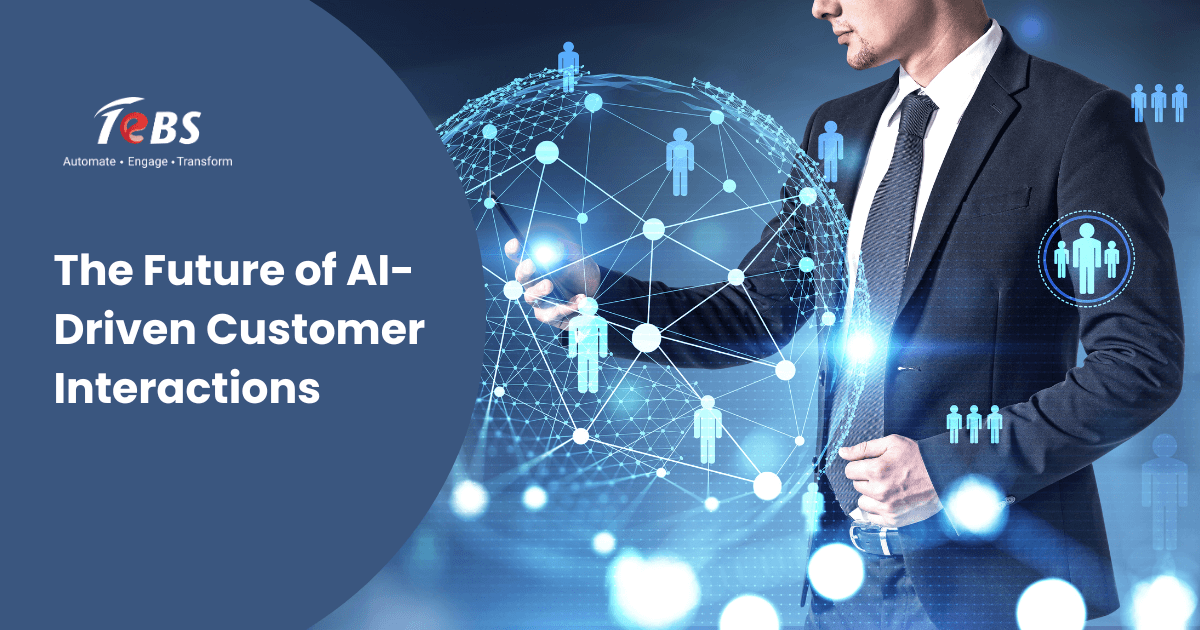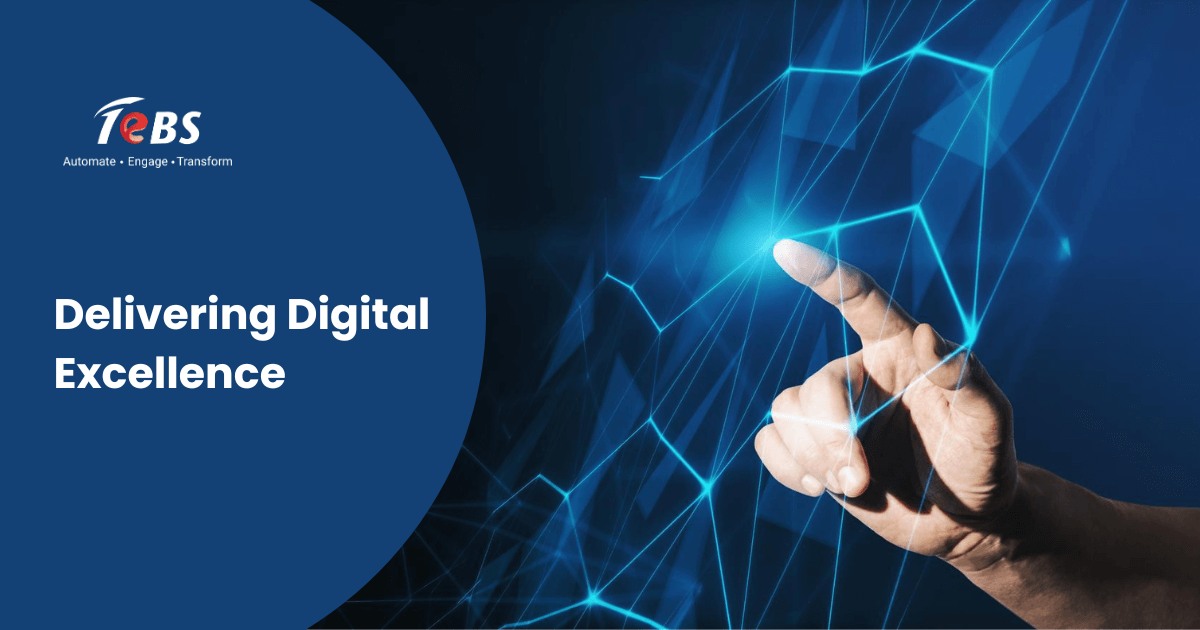The Future of AI-Driven Customer Interactions
In the rapidly evolving landscape of customer service, digital transformation has become a cornerstone, and at the heart of this transformation are two remarkable technologies: Generative AI and AI-enabled chatbots. These innovations have fundamentally reshaped the way businesses engage with their customers, offering unprecedented levels of efficiency, personalization, and round-the-clock support.
In this comprehensive blog, we will explore how Generative AI technologies, are leading the charge in digitizing customer service. Additionally, we will delve into various AI-driven use cases across industries, showcasing the profound impact of intelligent chatbots on enhancing customer-centric conversations.
Generative AI and AI-Enabled Chatbots: A Customer Service Game Changer
Generative AI represents a monumental leap in AI capabilities, enabling machines to comprehend and generate human-like text. ChatGPT, powered by OpenAI’s GPT-3.5 architecture, is an exemplary instance of Generative AI. It can understand context, answer questions, and engage in natural conversations, making it an ideal candidate for revolutionizing customer service.
- Building Business-Specific Knowledge Bases:
One of the primary ways Generative AI is transforming customer service is by creating business-specific knowledge bases. These knowledge bases are constructed by training AI models like ChatGPT on diverse sources, including:
Standard Operating Procedures (SOPs): AI can extract and synthesize information from SOPs to provide customers with step-by-step guidance for various tasks or troubleshooting.
Internal Documentations: By assimilating internal documents, AI can offer insights and solutions based on proprietary knowledge, giving customers a competitive edge.
Brochures and Manuals: ChatGPT can access product brochures and manuals to provide customers with detailed product information and usage instructions.
Predefined Rules: AI can follow predefined business rules to ensure accurate and consistent responses, ensuring compliance and maintaining brand integrity.
This approach empowers AI to provide customers with highly accurate and context-aware information, significantly reducing response times and enhancing overall customer satisfaction.
- Enhanced Security with Azure OpenAI:
Security and data privacy are paramount concerns in customer service. To address these concerns, many businesses opt for platforms like Azure OpenAI. Azure offers robust security and data privacy controls, ensuring that customer interactions are safe and compliant with regulations. This allows organizations to leverage Generative AI without compromising sensitive information.
- Automated Privacy Protection:
Businesses often deal with sensitive customer data or proprietary information. Generative AI can be programmed to automatically mask entities related to privacy protection or proprietary information. This ensures that confidential data is never exposed during customer interactions, safeguarding both the customer’s privacy and the company’s intellectual property.
AI-Enabled Chatbots: Transforming Digital Assistance
In addition to Generative AI, AI-enabled chatbots are revolutionizing the digital customer service landscape. These chatbots, driven by AI and machine learning, offer dynamic actions and seamless automation, making them indispensable for businesses aiming to streamline their customer support processes.
Dynamic FAQ Process:
One of the most common applications of AI-enabled chatbots is in transforming Frequently Asked Questions (FAQs) processes. Traditional FAQs can be static and often fail to address unique customer queries. AI-powered chatbots, however, can provide dynamic responses by understanding context and tailoring their answers to the specific needs of each customer. This not only saves time but also enhances the customer’s experience.
Seamless Automation:
Chatbots can automate a wide range of tasks, such as appointment scheduling, order tracking, and troubleshooting. By offloading routine tasks to chatbots, businesses can free up their human agents to focus on more complex and value-added interactions. This not only increases efficiency but also reduces operational costs.
AI-Led Use Cases Across Industries
Now, let’s explore some industry-specific use cases that demonstrate the power of intelligent chatbots in enhancing customer-centric conversations:
Retail:
In the retail sector, chatbots can assist customers in finding products, tracking orders, and even offering personalized product recommendations based on the customer’s browsing and purchase history.
Product Recommendations: Chatbots analyze customer preferences and buying history to suggest tailored product recommendations.
Inventory Status: Provide real-time updates on product availability, helping customers make informed decisions.
Healthcare:
Healthcare providers can use chatbots to schedule appointments, provide medication reminders, and answer general health-related queries, ensuring patients receive timely and accurate information.
Appointment Scheduling: Streamline the appointment booking process, ensuring patients receive prompt and convenient healthcare services.
Medication Reminders: Send medication reminders based on individual prescriptions to improve adherence.
Finance:
Chatbots in the financial industry can assist customers with account inquiries, transaction history, and even provide investment advice based on customer profiles and market trends.
Account Management: Assist customers with account inquiries, transaction history, and balance checks.
Financial Advice: Offer personalized investment advice based on customer profiles and market trends.
Hospitality:
In the hospitality sector, chatbots can handle booking inquiries, room service requests, and provide local area information to enhance the guest experience.
Reservation Management: Enable customers to book rooms, restaurants, and other amenities effortlessly.
Concierge Services: Provide guests with local recommendations and assistance.
E-commerce:
E-commerce companies can use chatbots to offer real-time order tracking, assist with returns and refunds, and provide product recommendations, thereby boosting sales and customer loyalty.
Order Tracking: Offer real-time order tracking, reducing customer inquiries and enhancing transparency.
Returns and Refunds: Streamline the returns and refunds process, improving customer satisfaction.
Manufacturing:
In manufacturing, chatbots streamline technical support, helping operators troubleshoot issues and optimize production processes.
Technical Support: Troubleshoot common technical issues and provide instructions for equipment maintenance.
Order Status: Keep customers informed about order progress and shipping details.
In conclusion, the digitization of customer service through Generative AI technologies and AI-enabled chatbots is ushering in a new era of efficiency, personalization, and customer satisfaction. Businesses that embrace these innovations are not only improving customer interactions but also gaining a competitive edge in today’s fast-paced digital landscape. As technology continues to advance, we can expect even more exciting developments in the realm of digital customer service. Stay tuned for the future of AI-driven customer interactions!
At TeBS , we have developed Chatbots and integrated with popular communication channels like WhatsApp, Facebook, and WeChat, to provide convenient access to information,even enabled them in multiple languages for ease of use . to know more about our AI enabled Chatbot solutions, email us at [email protected]





